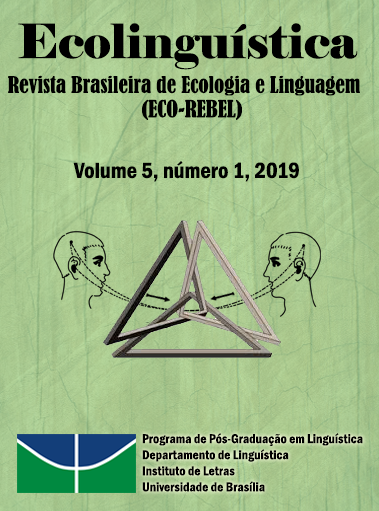The french language before and after the revolution
Keywords:
Revolução Francesa; língua francesa; adaptação; inovação; evolução; neologismo.Abstract
This article written in 1894 discusses the French language before, during and after the French Revolution, showing some transformations it underwent. These transformations obtained inside the conception of language as an organism that is born, grows and dies. However, like living organisms, language adapts iteself to its natural and social environments. One of the most conspicuous innovations show up at the level of the lexicon. Entirely new words are introduced, but some of them emerge by derivation. The dé- and ré- prefixes, for instance, were largerly used in these words. The same happened to the sufix ”“iser. Most of these innovations entered also the other Romance languages, as is the case with Portuguese.
Downloads
Downloads
Published
How to Cite
Issue
Section
License
Copyright (c) 2019 Ecolinguística: Revista brasileira de ecologia e linguagem

This work is licensed under a Creative Commons Attribution-NonCommercial-NoDerivatives 4.0 International License.
Authors who publish in this journal agree to the following terms:
Authors retain copyright and grant the journal the right of first publication. The work is simultaneously licensed under the Creative Commons Attribution License allowing the sharing of the work with acknowledgment of the authorship of the work and initial publication in this journal.
Authors are authorized to enter into additional contracts separately for non-exclusive distribution of the version of the work published in this journal (e.g., publishing in institutional repositories or as book chapters), with acknowledgment of authorship and initial publication in this journal.
Authors are allowed and encouraged to post and distribute their work online (e.g., in institutional repositories or on their personal page) at any point before or during the editorial process, as this can bring about productive revisions as well as increase impact.
Citation of published works (See The Effect of Free Access).



3.png)



